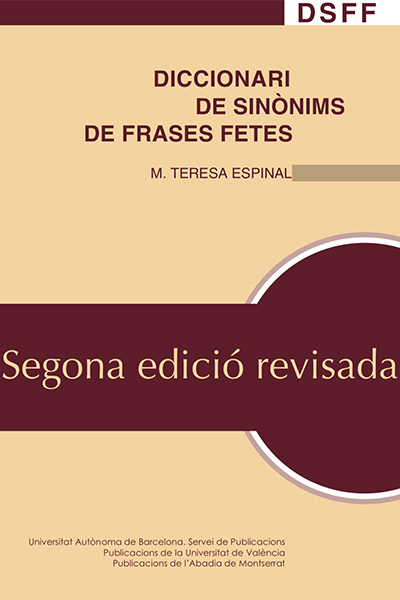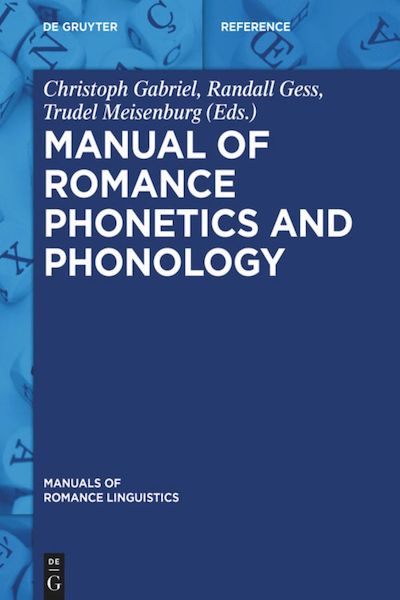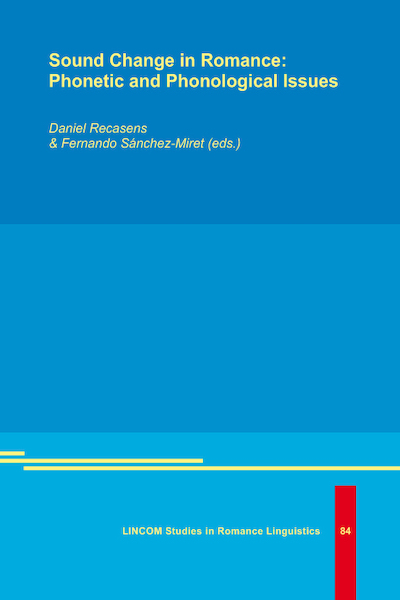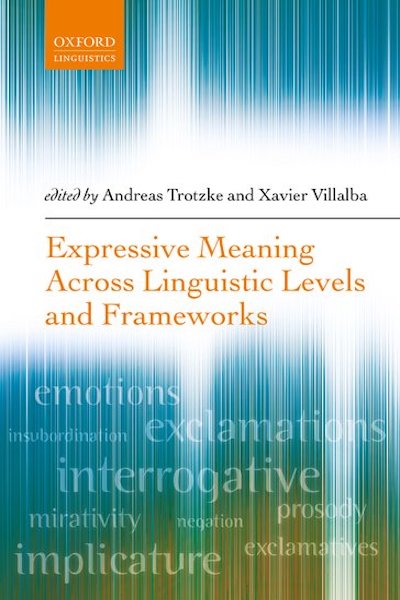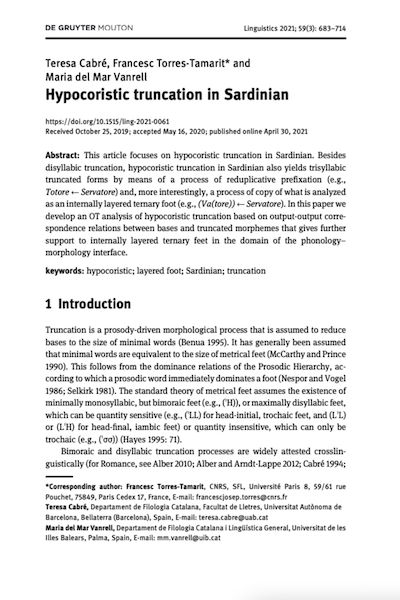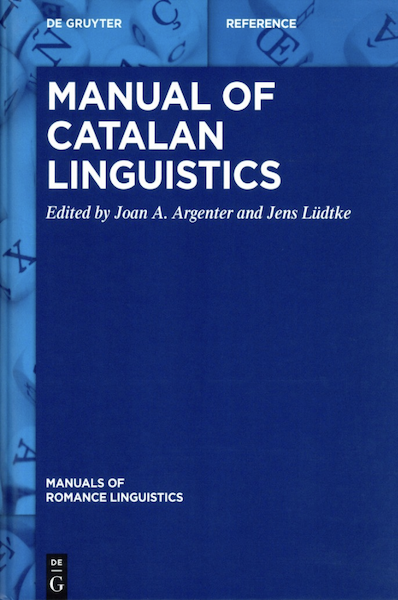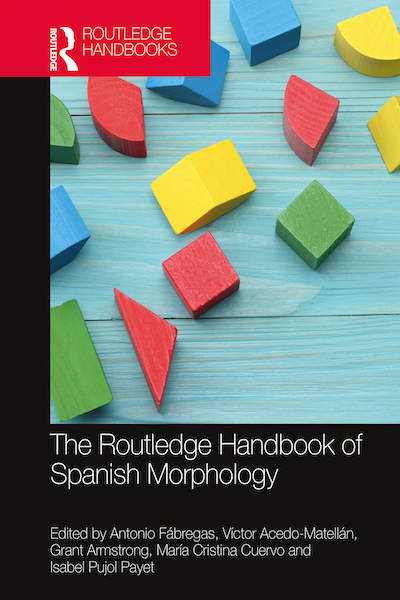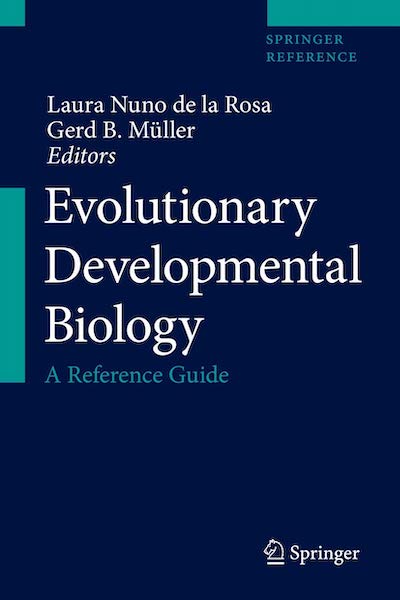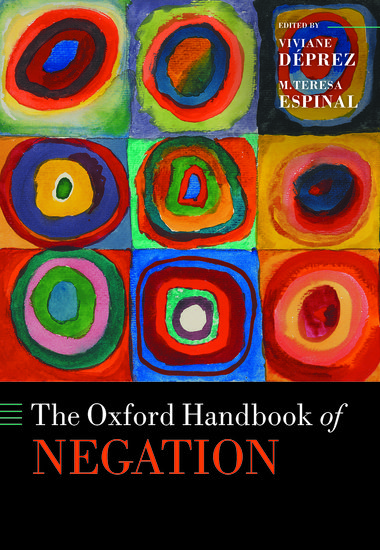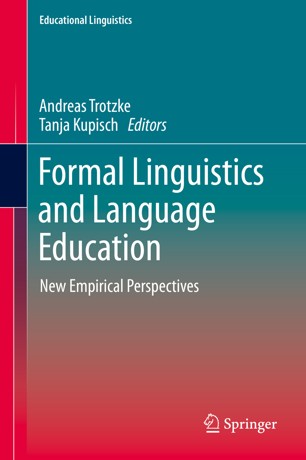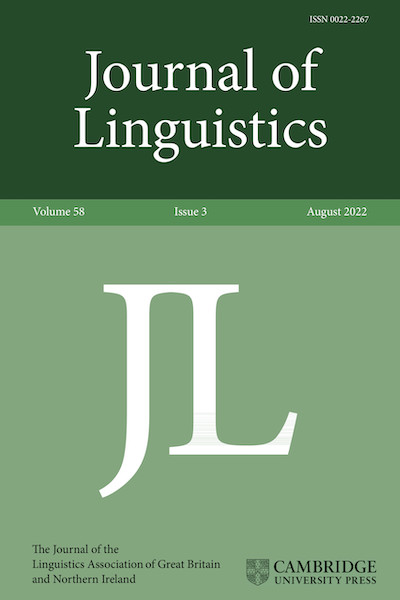
Autors:
M.T. Espinal & Sonia CyrinoTítol:
A syntactically-driven approach to indefiniteness, specificity and anti-specificityEditorial: Journal of Linguistics 58(3), Cambridge University Press
Data de publicació: Agost 2022
Més informació
In this paper we present an original approach to analyze the compositionality of indefinite expressions in Romance by investigating the relevance of their syntactic distribution in relation to their meaning. This approach has the advantage of allowing us to explore the question of how syntactic structure can determine the meaning of different forms of indefiniteness. To that end, we postulate a common derivation for bare plurals, bare mass and de phrases, whereby an abstract operator DE is adjoined to definite determiners and shifts entities into property-type expressions. Quantificational specificity is proposed to be derived from a syntactic structure in which weak quantifiers select for indefinite DE-phrases, no matter whether de is overt at Spell-Out or not; these quantifiers turn properties into generalized quantifiers. The anti-specificity meaning of some indefinites is derived by adjoining in the syntactic structure an abstract operator ALG that encodes the speaker’s epistemic state of ignorance to a quantifier encoded for specificity, and it turns a generalized quantifier into a modified generalized quantifier. The paper also brings some general predictions on how indefiniteness is expressed in Romance, as it provides extensive support from five Romance languages: Brazilian Portuguese, Catalan, French, Italian and Spanish.

